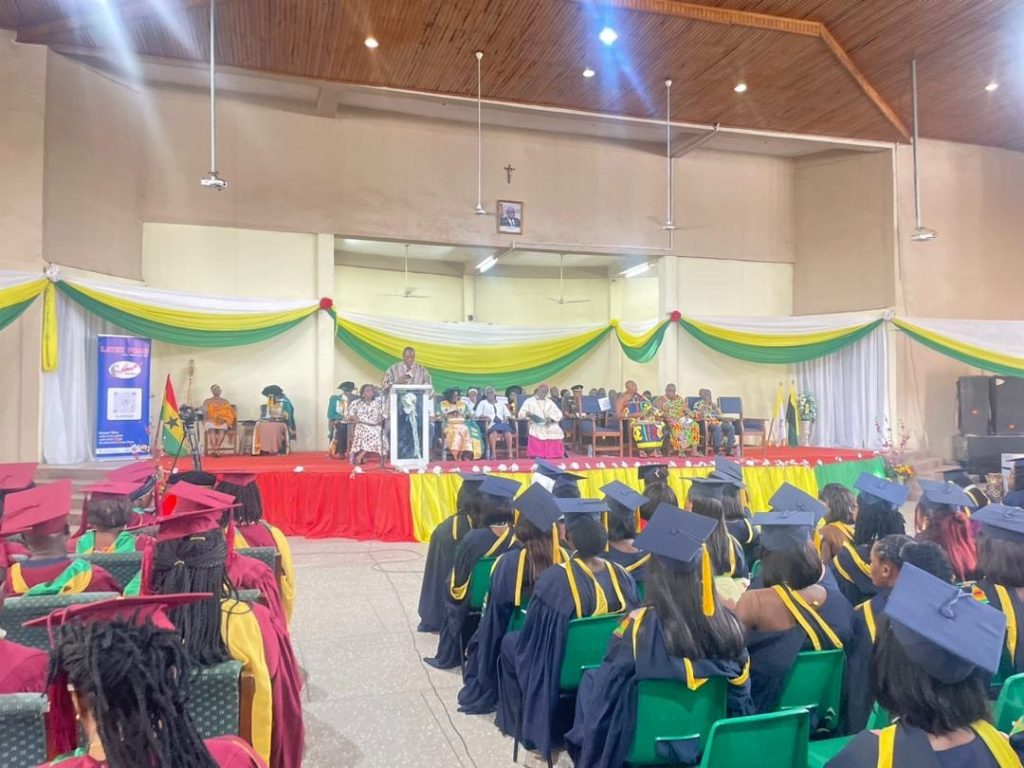By Dominic Antwi Agyei
Kumasi, July 08, GNA – Professor Kingsley Nyarko, a Deputy Minister of Education, has stressed the need for Ghana to strive to achieve at least 40 per cent of the Gross Tertiary Enrolment Ratio (GTER) to help accelerate the country’s pace of development.
Studies, he said, had shown that in developed nations, workers from tertiary education contributed 60 per cent of their Gross Domestic Product (GDP).
This indicated that tertiary education played a vital role in the development of any nation, and Ghana must work to attain that feat to speed up its socio-economic development.
Prof. Nyarko, who is also the Member of Parliament (MP) for Kwadaso, stated this at the 19th congregation ceremony of St. Louis College of Education in Kumasi.
It was on the theme “The quest for quality basic education delivery in Ghana – the role of the digitalized-era female teacher”.
Prof Nyarko, who is in charge of Technical, Vocation Education and Training (TVET) pointed out that, having a higher GTER, would not only improve the country’s economy but would also provide students with the opportunity to acquire the skills and knowledge necessary to meet the demands of the 21st-century workforce.
This, he said, would also foster innovation and creativity, which were crucial for the progress of any nation.
According to the Deputy Minister, the role of women in education in the digital age had become pivotal, transforming every aspect of lives, including how they teach and learn.
“As we navigate this new era, it is imperative that we harness the potential of digital technologies to enhance the delivery of quality basic education in Ghana.
The female educators of today are not just teachers; they are pioneers, innovators, and leaders in the digitalized era,’ he said.

Prof. Nyarko charged the graduands to embrace the opportunities that the digital age offers, but remain grounded in the values of empathy, integrity, and service.
“Your role as female educators in this digitalized era is not only to teach but to inspire, to innovate, and to lead,” he observed, adding that, they should help impart knowledge, and shape the minds and hearts of the future generation.
A total of 582 students graduated, out of which 228 students specialized in early childhood education, while 237 specialized in upper primary education and 117 specialised in junior high education.
GNA